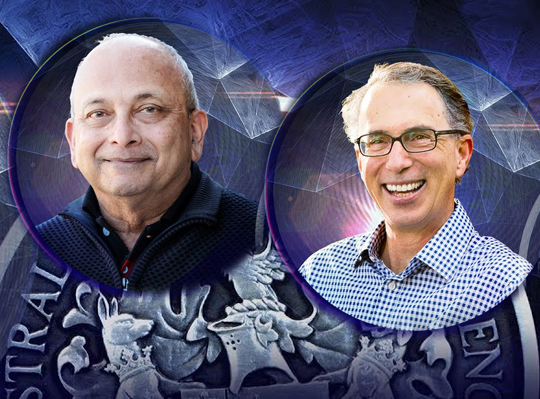
Two of our recently appointed Australian Academy of Science Fellows tell us about their work helping to create resilient and valuable environments.
Scaling up omega-3 a win for sustainability
Long-chain omega-3 fatty acids, in particular, DHA and EPA, are vital for early childhood growth, in particular, brain and eye development and cognition. Into adulthood, long-chain omega-3 fatty acids can also reduce blood pressure and the risk of coronary heart disease as well as stroke, type 2 diabetes, Alzheimer’s disease, inflammatory disease and asthma.
To meet our nutritional needs, we currently rely on ocean-caught fish as our main source of long chain omega-3 oils. But with a growing global population, our oceans are struggling to supply consumer demand.
Through the use of gene technology, Agriculture and Food’s Surinder Singh and his team have transferred the ability to produce long chain omega-3 oils from lower plants (the marine micro-algae that fish consume) into canola, the world’s second-largest and Australia’s largest oil-seed crop. It is the most complex piece of metabolic engineering so far achieved in plants and will provide new opportunities for improving human nutrition and even the replacement of fossil fuels.
This new plant-based solution will help combat this. One hectare of omega-3 canola will provide the equivalent amount of DHA as 10,000 kilograms of wild-caught fish – a pretty great alternative – relieving pressure on fish stocks worldwide by reducing our reliance on ocean-caught fish. Recent fish feeding trials conducted in Australia and Norway indicate omega-3 canola oil can be an excellent substitute for fish oil in aquaculture diets.
Surinder and his team have also developed the world’s purest plant oil source of oleic acid through the development of a Super High Oleic Acid Safflower crop. The oil from this crop is highly stable and can be used in industrial applications and, in many instances, can provide a renewable replacement for petroleum-based products.
Our climate change crusader
Ocean and Atmosphere’s David Karoly was always interested in outdoor activities and the environment, but he found his university studies in physics and applied mathematics were hard to relate to his environmental interests and hard to explain to the public (and his mother).
After a summer vacation job at our Division of Atmospheric Physics in Aspendale in 1974, and then studying geophysical fluid dynamics in third year at Monash, David found a link between physics and applied mathematics to understanding the behaviour of the atmosphere and the ocean.
His main research over the last 10 years has been on understanding the links between human-caused climate change and observed changes in global and regional climate. More recently, this has focused on the attribution of extreme weather and climate events in Australia to human-caused climate change.
To request a transcript please contact us.
David’s achievements include time spent at the Department of Meteorology at the University of Reading – one of the largest and best meteorology departments in the world. He also worked as a PhD student under Brian Hoskins – a Lecturer at Reading who went on to be knighted for his contributions to atmospheric science. David has held multiple roles in the international scientific assessments of climate change undertaken by the Intergovernmental Panel on Climate Change (IPCC) where he was one of more than a thousand IPCC scientists who shared in the award of the Nobel Peace Prize in 2007 to Al Gore and the IPCC.
More recently, as Leader of the Earth Systems and Climate Change (ESCC) Hub in the Australian Government’s National Environmental Science Program, based in CSIRO, David’s role is to coordinate the Hub’s research in climate change science and facilitate communication of information to decision-makers across all major sectors.
Congratulations to our Fellows
“Becoming a Fellow of the Academy is a tremendous honour and recognition of my research over the last 40 years, since my first post-doc position in CSIRO. It wouldn’t have been possible without the efforts of many graduate students and post-doctoral researchers that I have guided over this period,” David says.
“I am extremely proud to have been elected a fellow of the Academy. I consider this as a great recognition of the work done by my team over the last 25 years in the Plant Oil Engineering Group at CSIRO Agriculture and Food,” Surinder says. “I am also really grateful to my colleagues from other parts of CSIRO, Nuseed and GRDC who have also made significant contributions to what we have been able to achieve in metabolic engineering of plant oils.”

